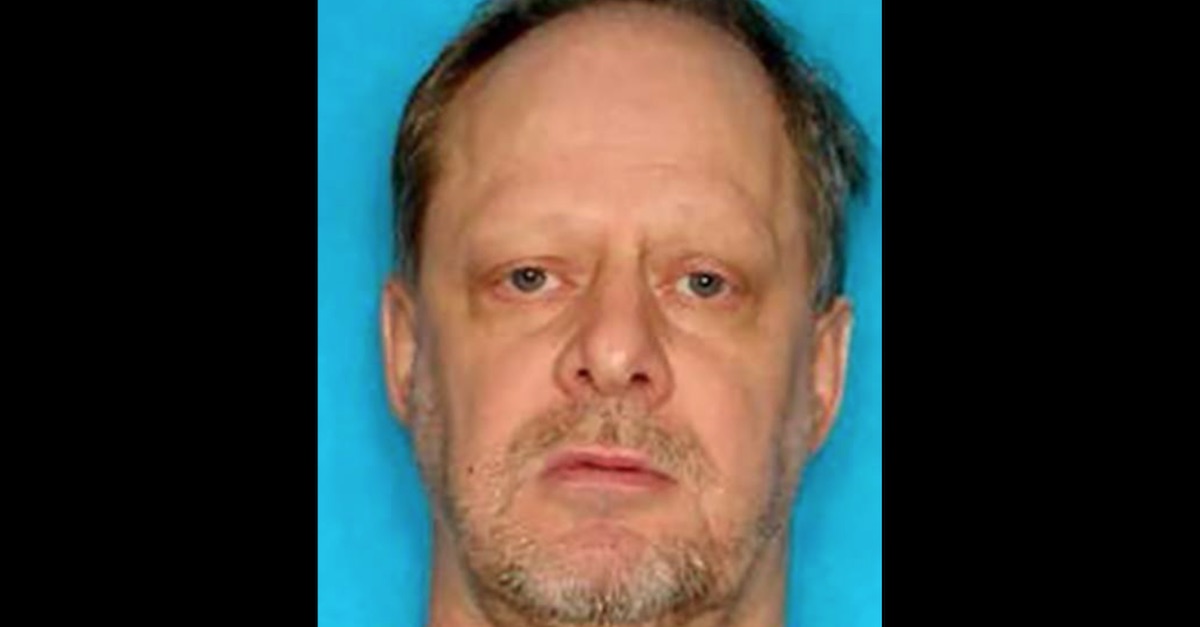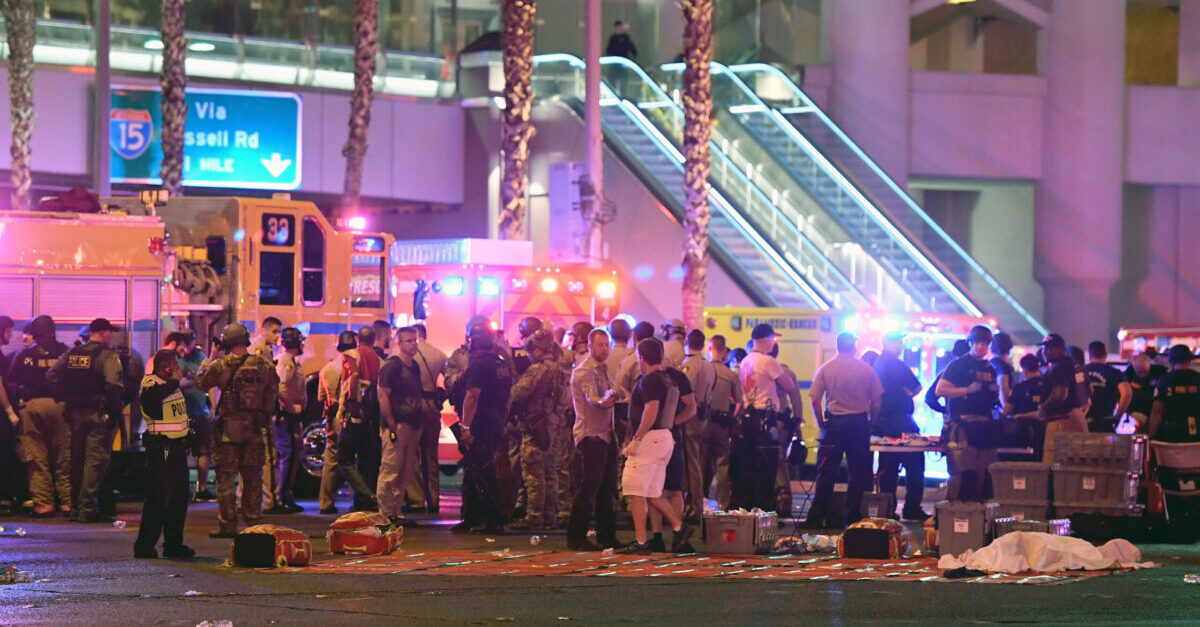
President Donald Trump walks between columns outside the White House.
According to a recent report, deaths attributable to so-called “right-wing domestic terrorists” have increased by more than 300% since President Donald Trump took office in 2017.
A database compiled by the Type Media Center’s David Neiwert and based on government interpretations of ideological motivations showed that at least 87 people were “killed by far-right terrorists” during Trump’s first three years in office. That number swells to 145 dead in three years if the 58 people killed by Stephen Paddock during the Las Vegas massacre in October 2017 are added in.
The Type Media Center was formerly known as The Nation Institute and was previously attached to The Nation magazine.
From 2013 through 2016, “right-wing” terrorists in the United States killed some 46 people.
Conversely, Neiwert notes, only 17 people have died due to domestic Islamic terrorism over the past three years. Left-wing domestic terrorism barely registered during the time span; only four such deaths occurred in the past three years.
“The stuff about the Las Vegas killing is interesting because it shows how police literally can’t SEE right-wing ideology because it is naturalized as normal politics,” claimed The Nation‘s National-Affairs Correspondent Jeet Heer on Saturday.
According to Neiwert and others, there is every indication that Paddock was an anti-government, gun-rights zealot. Paraphrasing numerous acquaintances of the killer into a composite explanation of his ideology, Neiwert writes that Paddock “had a thing about guns and the Second Amendment and harbored a deep fear that the government would attempt to take them away.”
One such acquaintance said that he defended the Second Amendment “with an incredible degree of vigor.”

Stephen Paddock — [Image via the FBI]
But, because Paddock lacked any explicit right-wing organizational affiliations and because he did not leave behind a manifesto after he shot nearly 900 people, the government declined to assign him any ideological motivation.
“The Paddock case is odd in that if there were the same number of links to ISIS or Al Qaeda ideologies, there would be no question that the government would highlight them and call him an Islamist terrorist,” Brennan Center for Justice Liberty and National Security Fellow Michael German told Neiwert. “But here, law enforcement tried to hide and downplay his many links to far right groups/ideology.”

The aftermath of the Oct. 2017 mass shooting in Las Vegas, Nev. — [Photo by Ethan Miller/Getty Images]
The database shows that during the first three years of the Trump administration, cases involving Islamist extremists were preempted 18 times, compared with seven completed attacks, or 72% – a powerful indicator of the resources federal agencies poured into such probes. In contrast, a minority of right-wing extremist cases were preempted – 18, compared with 30 realized attacks, or 37.5%.
“[L]aw enforcement priorities remain skewed,” Neiwert claims.
The top-line numbers are based on the total number of killings that were committed by far-right domestic terrorists–under an expansive definition of the term–in the first three years of Trump’s presidency compared to those committed by the same ideological cohort during the last three years of Barack Obama‘s time in the White House.
A less expansive definition of what constitutes right-wing domestic terrorism–during the same time frame–shows that such killings have risen by nearly 200% since Trump became president.
[photo by Drew Angerer/Getty Images]